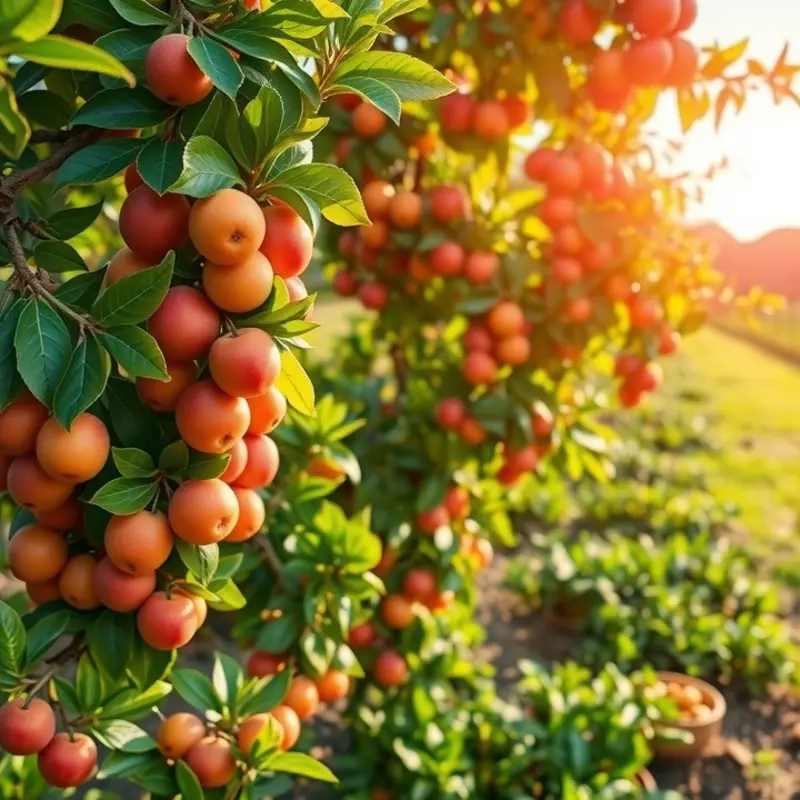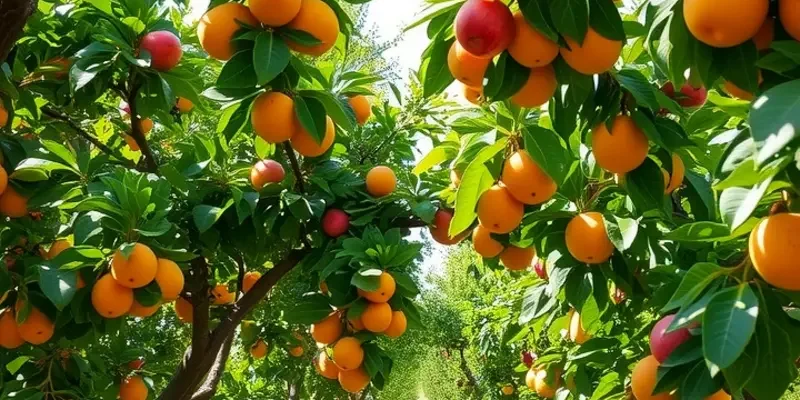Embracing eco-consciousness in your diet has never been more accessible, particularly with the rise of frozen fruit. These vibrant morsels not only satisfy your cravings but also represent a commitment to sustainable eating. As the demand for environmentally-friendly food choices grows, frozen fruits provide a practical solution for those seeking to minimize their ecological footprint while maximizing nutrition. Let’s explore the many benefits of making eco-conscious frozen fruit a staple in your grocery basket.
The Sustainability of Frozen Fruit

Frozen fruit is often overlooked in discussions about sustainable food practices, yet it plays a vital role in ecological balance. This preservation method extends shelf life while maintaining the essential nutrients found in fresh produce. The process of freezing fruit shortly after harvest ensures that vitamins, minerals, and antioxidants remain intact, providing a convenient option for those seeking both nutrition and sustainability.
One of the most significant benefits of frozen fruit is its capacity to reduce food waste. Fresh produce often spoils before it is consumed, contributing to a global waste issue. In contrast, frozen fruit can be stored for extended periods, allowing for consumption at a later date. This reduces the need for frequent purchases and minimizes the likelihood of waste, a topic explored further in our guide to low-waste cooking and preparation.
Frozen fruit also supports sustainable farming practices. Because it can be stored year-round, farmers are not restricted to peak seasons for selling their produce. This alleviates the pressure on natural resources and allows for more stable economic conditions in farming communities. With demand not confined to seasonal peaks, farmers can plan better, improve crop rotations, and invest in practices that regenerate soil and enhance biodiversity.
Choosing frozen fruit is a step towards lowering carbon footprints. Transporting fresh produce often involves shipping goods over long distances to meet off-season consumer demands, which increases carbon emissions. Frozen fruit, however, is typically packaged close to where it is grown and can be stored and shipped economically, reducing its environmental impact.
Moreover, the freezing technology itself is becoming more energy-efficient. Advances in freezing methods mean that energy consumption during production is minimized, making the entire process more eco-friendly. These improvements help to ensure that frozen fruit remains a sustainable choice for environmentally conscious consumers.
In addition to these environmental benefits, frozen fruit enhances local economies. By encouraging local consumption, it reduces the reliance on imported goods and helps boost regional agricultural sectors. This not only supports local farmers but also contributes to food security by diversifying the range of available produce.
Ultimately, choosing frozen fruit aligns with the principles of sustainable living. It allows consumers to enjoy nutritious, delicious, and eco-friendly produce regardless of the season. By integrating frozen fruits into our diets, we not only enjoy the taste of nature’s bounty but also support a healthier planet.
Practical Ways to Incorporate Frozen Fruit

Incorporating eco-conscious frozen fruit into your meals can be an exciting journey. These vibrant and nutrient-packed gems can transform your everyday diet into a colorful feast. Let’s explore a variety of practical methods to enhance your culinary repertoire while supporting sustainability.
Smoothies are a classic choice, effortlessly marrying convenience with nourishment. Start your day by blending a mix of frozen berries, a handful of spinach, and a splash of almond milk for a quick breakfast. To add depth, toss in a tablespoon of chia seeds or flaxseeds for added fiber and omega-3s. This simple preparation cuts down on food waste by using fruit preserved at peak ripeness, ensuring you consume every bit of nature’s bounty.
Frozen fruits also shine in desserts, offering endless possibilities. Consider incorporating them into a light sorbet or a luxurious fruit compote. For a no-fuss dessert, lay out a selection of frozen fruits on a baking sheet and bake at 350°F for about 20 minutes. This easy fruit bake can be enjoyed on its own or spooned over yogurt for a refreshing treat. If you’re keen on pastry, check out global pastry traditions for creative inspiration.
Snacks with frozen fruit can be as simple as they are delightful. Craft energy bites with blended frozen fruit, oats, and a touch of honey. Roll them into small balls and pop them in the freezer for a few minutes to set. These bites are not only quick to prepare but also perfect for an energy boost during a busy day.
Frozen fruit excels in beverages beyond smoothies. Infuse water with frozen fruit pieces like pineapple or peaches for a subtly sweet and hydrating drink. Alternatively, frozen berries can be a vibrant addition to your herbal teas or cocktails, chilling and flavoring them simultaneously.
Incorporating frozen fruit into your cooking can reduce prep time and eliminate the need for preservatives. For instance, use frozen chopped mango in salsas or alongside grilled chicken for a tropical twist. Moreover, adding frozen blueberries to pancake batter offers a delicious pop of flavor that pairs well with a drizzle of maple syrup.
For more on minimizing waste in meal preparation and storage, review our tips on low-waste cooking prep. By choosing frozen fruit, you’re making a conscious choice to enjoy nature’s flavors sustainably. Weaving these fruits into your meals is not only beneficial for your health but also contributes positively to our planet.
Final words
Choosing eco-conscious frozen fruit is a powerful act of sustainability that benefits both our health and the planet. By embracing these vibrant, nutrient-rich options, you not only enjoy the convenience of keeping your favorite fruits on hand year-round but also support sustainable farming practices and lower environmental impact. Making informed and eco-friendly choices in your diet can foster a healthier ecosystem, nurturing the world for generations to come. Together, we can contribute to a thriving planet by integrating these delicious fruits into our daily lives.








